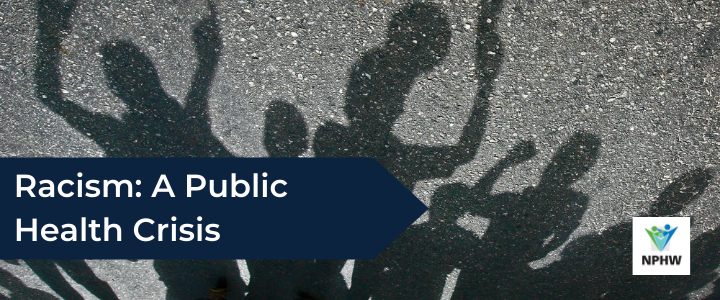
During President Biden’s State of the Union address earlier this month, he expressed confidence that the United States is emerging into a new normalcy after our long two-year battle with the novel coronavirus that claimed the lives of nearly 973,000 Americans (as of March 30, 2022). This confidence is validated by two-thirds of the American populace fully vaccinated against COVID-19, the development of lifesaving therapeutics, and the decline in cases of the infectious omicron variant.
As we are better positioned to combat the pandemic, our collective desire to move beyond COVID-19 necessitates that we center our efforts on marginalized and minority communities that have been historically disproportionately impacted by public health crises.
Our public health infrastructure and policymakers’ focus should shift to eliminating health-related racial disparities. These disparities extend well beyond COVID-19, impacting maternal health outcomes for Black and indigenous women and climate control in communities of color in much more stark ways than their white counterparts.
There has never been a more consequential time for the public health workforce than now.
Bishar Jenkins, Jr. | SOPHE Manager of Policy & Programs
Since many existing disparities were produced by decades and sometimes centuries-old decisions that caused structural injustices for communities of color, the solutions we propose will require transformative and strategic investments into communities of color.
Further, we should center on marginalized communities and the solutions they would like to see implemented in their communities. Honoring grassroots and community knowledge when crafting policy solutions is critical to achieving antiracist policies. Appropriating transformative funding directly to community stakeholders who have established a great degree of trust in the communities they serve is a crucial component to eliminating health disparities.
There has never been a more consequential time for the public health workforce than now. We honor all our public health workers, especially our BIPOC (Black, Indigenous, and persons of color) public health workers. We recognize their efforts and acknowledge that our collective efforts to eliminate racial health disparities also rely on their expertise and knowledge. We call on policymakers to center the mental health and wellbeing of public health workers serving marginalized and vulnerable communities. The mental health toll these workers experienced long before COVID was only exacerbated during the worst global pandemic in a century.
If another pandemic happens, the burden does not have to inflict the same terrible cost on marginalized and minority communities or public health workers who represent those same communities. Incorporating marginalized communities into the decision process and creating advance policy solutions to respond to achieve health justice is the beginning of embracing an antiracist approach to Public Health.
Bishar Jenkins, Jr. , MPP | Manager, Policy & Programs
Learn more about SOPHE’s advocacy efforts.

